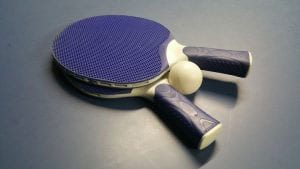China’s attempt to stem the tide of drug addiction through brain surgery has been problematic. Yet a recent article in the Himalayan Times reports that six of the eight registered deep brain surgery clinical trials in the world are being held in China.
In China, addicts are held in compulsory treatment for years. China’s “rehabilitation” consists of mandatory labor. It has ample government funding as well as a huge money supply to spend on research. But the world’s scientific community is skeptical of China’s policies to curb addiction.
Now The Opioid Crisis
It appears that as the opioid crisis grows, so does the interest of doctors and U.S. regulators to weigh the risks versus the rewards of brain surgery implants. There were over 500,000 deaths from drug overdose in the U.S. during a ten year period ending in 2017.
The shocking number of deaths is responsible for the urgency to discover treatment for widespread addiction.
U.S. officials report that the majority of synthetic drugs are shipped from China. However, several roadblocks, including scientific, social and ethical issues must be overcome in order to gain approval for the brain implant procedure in the U.S.
Obstacles in the West
Two major clinical trials testing DBS for depression had failed five years earlier. This caused U.S. researchers to rethink criteria for ethical testing.
A prominent neurosurgeon recently commented on other obstacles such as the necessary, yet strict FDA regulations that make clinical trial recruitment difficult.
This year, the U.S. FDA approved a West Virginia clinical trial. The study is testing deep brain surgery (DBS) to curb addiction to opioids. The trial is expected to launch mid-year.
There is also the price tag of $100,000 per implant for the procedure in the U.S. In comparison, the device can cost under $25,000 in China, where people often pay in cash.
DBS attempts by the West have thus far not been successful. However, China is becoming the center for DBS operations and research.
European scientists have also run into difficulty recruiting patients for their brain surgery studies.
Brain Lesioning Before DBS
Heroin users’ families in China have paid thousands over the years for a procedure called brain lesioning. The procedure, which is irreversible, is the predecessor of DBS and carries extreme risk.
Brain lesioning involved the destruction of clumps in brain tissue. For a while, it created profits for certain hospitals. The patients, however, developed mood disorders, loss of memory and changes to sex drives.
China’s Health Ministry stopped most of its hospitals from performing brain lesioning in 2004. But nine years after the ban, one of its military hospitals reported that 50% out of a total of 1,167 patients who had undergone brain lesion surgery were drug-free for almost five years.
DBS, in theory, is reversible and is labeled as new global technology.
Yan’s Addiction
Yan’s story is similar to stories that have been told over and over by so many other addicts. It begins with friends urging him to use meth, “just once”.
That led to a strange feeling of clarity whenever he smoked. He believed that with this new clarity he would be a winner if he gambled. He not only lost about $150,000 over the years, but also lost his wife and son, job, and self -respect.
Yan went the usual round of rehab centers but relapsed each time. Finally, his father gave him an ultimatum that worked. His father’s friend had been cured with DBS surgery. It was DBS or back to rehab. Yan wanted his life back and chose DBS.
Yan’s Surgery
A clinical trial for methamphetamine is underway in a hospital in Shanghai. Similar trials are also being held for opioid addicts at the same hospital. Yan is its first patient.
Yan’s DBS surgery involved feeding electrodes deep into his brain. It is designed to end his addition with a “flip of a switch.” Two electrodes are threaded into an area near the forebrain that has been identified as the basis for addition.
Yan was awake for the first surgery on his brain but had general anesthesia for the second operation for the battery pack to be implanted in his chest. The battery pack powers the brain’s electrodes. It took ten hours for Yan to recover from the anesthesia.
Six months after the operation Yan had not touched drugs. He even tried to contact his ex-wife but found that she had remarried.
The risk involved with DBS is the possibility of a brain hemorrhage. As with other cases, Yan might experience personality changes, infection or seizures. Yan hopes that the operation will continue to be successful so that he will not return to his addiction.
Doctors have used DBS to treat Parkinson’s patients or patients with similar disorders for many years. In DBS, a device, that acts like a pacemaker, stimulates targeted areas in the brain.
What the Critics Say
Many critics argue against these experiments, claiming such operations are premature. They are calling for more testing on animals. It is to be noted that in the U.S., funding to date has been strictly for animal experiments.
The scientific world still does not have a full grasp of the workings of DBS. Scientists have even been debating about where the electrodes should be placed in the brain.
Other considerations that must be addressed are the social, biological and psychological factors that cause addiction.
DBS and Other Disorders
The DBS procedure has been tested in studies of depression, alcoholism, Tourette syndrome, and anorexia. Two labs in the U.S. discontinued clinical trials treating alcoholism due to study design concerns because the results did not outweigh the risks.
The chairman of the Singapore medical device company, SceneRay, commented that the U.S. FDA blocked its application for a DBS clinical trial. SceneRay is now seeking regulatory approval in China for a DBS clinical trial for opioid addiction. The trial would involve 60 patients and be held at multiple locations.

.jpg)




